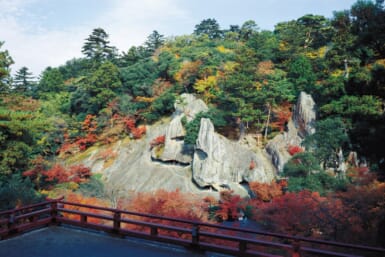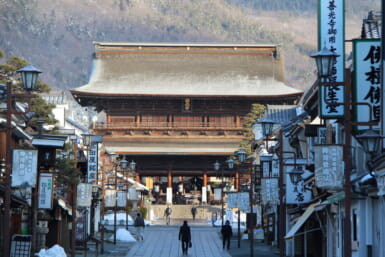I am looking at a piece that my wife Akiko sent me from the UK. The article is headed “China comes of age on the world stage.” It appeared in the UK paper the Evening Standard of Dec. 14, running across six columns. The byline is “Eric Ellis,” someone I do not know.
The piece was seemingly written from Bangkok. Here’s the lede:
“Gaggles of camera-toting Chinese may seem like an irritation at Bangkok airport departure lounge. But to Thais, and indeed to much of Asia weathering a deep recession, a mob of tourists from mainland China travelling abroad for the first time is a joyful sight.
“They may not realize this but these Chinese, barely a generation out of the Maoist regime, are the standard-bearers of a new Asian economic miracle.
“And it is one that post-Cold War and, more poignantly, post 11 September, says a lot about how the world economy is reshaping for the 21st century, with China fast emerging as an Asian superpower to replace Japan and challenge US and European supremacy.”
My apologies for the seemingly endless quote. But perhaps the point is clear. The story all but wrote itself, once Mr. Ellis got going with his reference to “gaggles of camera-toting Chinese…” One knew that he was going to hit on the point of China replacing Japan in a matter of a paragraph or two. This article is one of those pieces that, once started, flowed.
When I received this column I immediately re-faxed it to a person who has been giving a lot of attention to China in the last decade. I refer to Mr. Minoru Mori, the property developer. I wanted Mori-san to know what they are saying about China in the West. Basically, the western press is impressed. We see a new world star shooting up, replacing Japan.
Right or wrong? I do not presume to know. But common sense says that it is time for all of us, as we kick off in 2002, to raise our eyes across the Yellow Sea, and focus on China.
The story is over there. The World Cup, to be sure, is going to dominate news coverage out of Japan and Korea, but the real story in 2002, I beg to submit, will be in China. At least this is the input I am receiving. I could give many examples. The other day an old friend from NHK, Takanori Aeba, walked up to me in the Foreign Correspondents Club and started to tell me—right there— how there has been a quantum leap in air traffic between South Korea and China. He was excited about this. He thought it was a big deal. Many Japanese are unaware of the new currents in the air outside their country, he opined. They do not know that, all of a sudden, the Koreans and the Chinese are working together.
“Japan is being bypassed, and does not know it,” Aeba-san summed up.
Decades ago, we worked together in Seoul, as bureau chiefs for our respective organizations. I guess that was what led him to walk up and buttonhole me. A familiar face…
In our time, up there in Seoul in the early ’80s, there were no direct flights between South Korea and China. The two countries were just starting to probe into each other. Just beginning… there was a trickle of contacts in third countries that then led on to today’s torrent of opportunities. Try and book a seat on a plane into Korea from virtually anywhere. It is not easy.
So. Korea is on fire. China is in flames, as an economic story. Hear Mr. Ellis on the subject once more:
“It is near impossible to hear anyone finding fault with China’s stellar economic performance…Beijing has just joined the World Trade Organisation, which is expected to cement China’s emergence as the world’s principal factory for manufactured goods. And it is becoming immensely wealthy.
“Some 20 years into the ‘open door’ policy, heralding two decades of uninterrupted growth, has seen Beijing emerge controlling the world’s biggest level of foreign exchange reserves, approaching $200 billion… It may soon be Dai Xianglong, Governor of the People’s Bank of China, as much as the U.S. Fed’s Alan Greenspan, whose elliptical remarks move markets.”
Yessir. Meanwhile, China is expected to steamroller along this year and next with a lusty 7% annual growth, a number that Japanese can only dream about… It reminds me of the Japan of 30 years ago, when all the economic indicators were pointed vertically upwards—steel output, automobile exports—with seemingly no ceiling in sight. The numbers were extraordinary.
Why, however, copy an article on the above lines to Mr. Mori, Japan’s top property-developer? He is a neighbor, and my wife and I would like him and his staff to be aware that the world’s press sees China for what it is: the big story in 2002 and beyond… Everyone is so down and depressed here, with the Japanese financial system about to implode. One could get the wrong idea, that there is nothing to rejoice about.
Not so. We have a dynamo in this region and its name is China. That old combination of Japan and China—the Chinese have all the manpower and the money, and Japan has the technology— can and will shift the economic center of gravity of the world to East Asia. At least that is the way I have been seeing it for, oh about 40 years. The future was not so hard to divine after all.
Meanwhile, is it time for Mori-san to resume work on his World Financial Center building in Pudong, Shanghai? I think so. Work has been interrupted for a couple of years…
Over here, Tokyo’s biggest, most visible new urban redevelopment bears Mr. Mori’s name—it is that site around the big tower taking shape in Roppongi 6-chome, Japan’s largest urban project in history. Take a look at the place, an entire cityscape is being conjured up.
But Shanghai is where the potential lies in Asia in 2002 and thereafter. That is what the world’s press is saying. Somehow the Japanese press is skirting the issue. People here are a bit preoccupied.








_KRAACH-クリスタルバスソルト-385x257.jpg)
